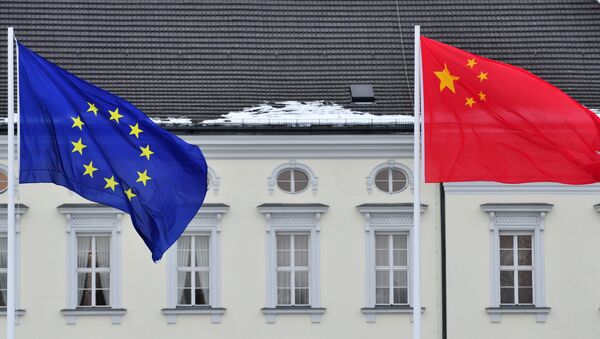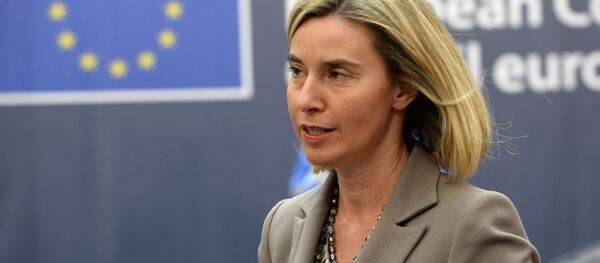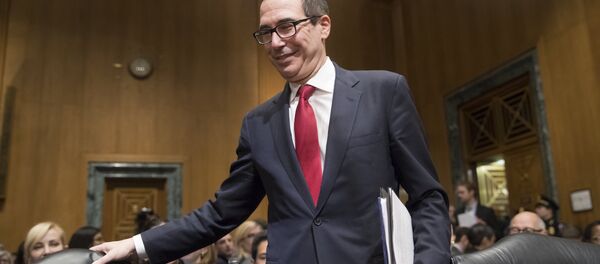In turn, the Chinese top diplomat confirmed Beijing’s readiness to work together with London in developing global free trade mechanisms to create an open global economy.
In fact, Wang Yi adjusted the economic diplomacy unveiled by President Xi Jinping to China-Britain relations. Moreover, EU’s chief diplomat Federica Mogherini and German Foreign Minister Sigmar Gabriel confirmed that the EU and Germany will continue their efforts to recognize China as country with a market economy.
Mogherini pointed out that the European Union would continue to work on the Article 15 of the protocol on Chinese accession to the World Trade Organization (WTO). December 11, 2016 marked the 15th anniversary of China's membership in the WTO, as well as the expiration of Article 15 of the protocol on the country's accession to the WTO that allowed other member to treat China as a non-market economy.
However, if Brussels rejects the initiative this would mean there are no formal reasons not to grant a market economy status to Beijing.
The reassurance by Mogherini and Gabriel indicate that Britain and Germany admit the importance of economic and trade ties with China, according to Andrey Volodin, an expert of the Center for Eurasian Studies, at the Russian Foreign Ministry’s Diplomatic Academy.
"They [Britain and Germany] regard the Chinese market as promising. Of course, they understand the negative outcome of de-industrialization in the EU, the United States and Britain. Voters also see this, so we’ve seen Brexit and the results of the US election. At the same time, according to some estimates, China has global capital of $3-4 trillion. It is a very strong argument for international financial and economic relations," Volodin told Sputnik Chinese.
The expert underscored that Western countries cannot ignore this fact and even Donald Trump known for his harsh anti-China remarks is now turning to "more balanced rhetoric."
"An era of global protectionism is coming in global trade. Beijing is looking for a strategy to fit in this new economic model described by experts as new economic nationalism. The talks in Bonn were an attempt to adapt to this new reality and find a counterbalance to protectionism," Volodin explained.
"One of the main reasons is the fact that under the conditions of globalization the US economy is shrinking. The EU understands that it needs to deepen and develop economic cooperation with China. So, Brussels is likely to recognize China as a market economy," the expert said.
Never miss a story again — sign up to our Telegram channel and we'll keep you up to speed!





